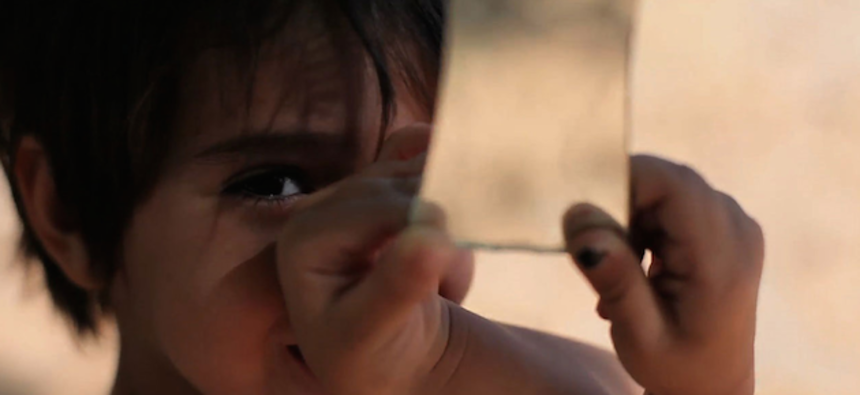San Cristóbal De Las Casas 2015 Review: In THE NAPTIME, Life Must Go On

It's not an easy task to make a documentary about such a controversial topic as the tragedy of the ABC daycare facility in northern Mexico, in which a fire caused the death of 49 children back in June 2009.
With The Naptime (aka La Hora de la Siesta), young director Carolina Platt proves she made concrete decisions in order to make a film that's not just respectful but also not another journalist's report.
At one point in the documentary, one of the protagonists (the father of a victim) says how he eventually stopped paying attention to the sociopolitical aspect of the case (the protests in specific) to really start focusing on his own life again, trying to rebuild it. Platt, like this character, was not interested in making a film about all the controversy, the continuous protests, and the impunity.
She doesn't ignore this per se, as doing that is certainly impossible, but this film is not a detailed account of all the facts, which is not a bad thing, as the ABC daycare tragedy is a notorious case that already got enough coverage in the media. ("If you want a recap of everything that happened, just Google it," said Platt during the Q&A at San Cristóbal De Las Casas).
Though those who are not familiarized at all with the subject will still learn the background: the fire should have been avoided; the fact that the daycare didn't have all the security requirements; and how none of the responsible people have been punished. Several questions regarding the case may still emerge after the credits roll, but the goal of the doc is not to answer everything, but rather to put the audience in the shoes of two families during the aftermath of the fire.
Emilia and "Yeye" were only three years old when they sadly passed away during naptime at the daycare. "Yeye" lived with his parents and two older brothers, while Emilia only with her father and grandmother. We get to know quite well all of these persons and the greatest accomplishment of The Naptime is that it make us care for them. The doc is firstly about the notion of memory; we learn about Emilia and "Yeye" through the stories that are still quite vivid for their familiars. But as much as it is about memories and nostalgia, the film also indicates constantly that life must go on no matter what.
It's a subtle approach that makes for potent material, as each character is profound and unique. The father of "Yeye", for example, says he can still have fun with his other kids, but deep down, happiness and joy is now completely gone for him. The mother is actually suffering with memory, as she can no longer recall her baby (she goes into a mental institution eventually), while on the other hand, Emilia's father decides to love again and form a new family.
The director also wants us to understand her personal connection with the tragedy. The film actually kicks off with an anecdote that connects Platt's own daughter with Emilia; that was the genesis of the project. While it's clear that Platt developed a bigger sense of fear of death once she began thinking about her daughter and Emilia, there's not enough emotional attachment to consider all of this a key element.
Aside from that, Platt takes on the role of a narrator who reflects on life, death, and memory, but her words are rather unnecessary. It's an attempt to make a more poetic piece, closer to The Dance of Memory, another new Mexican doc, but the footage of the protagonists itself was more than enough for rich themes and moving moments. And exactly because of this material, The Naptime is well worth checking out, even with all of its flaws.







